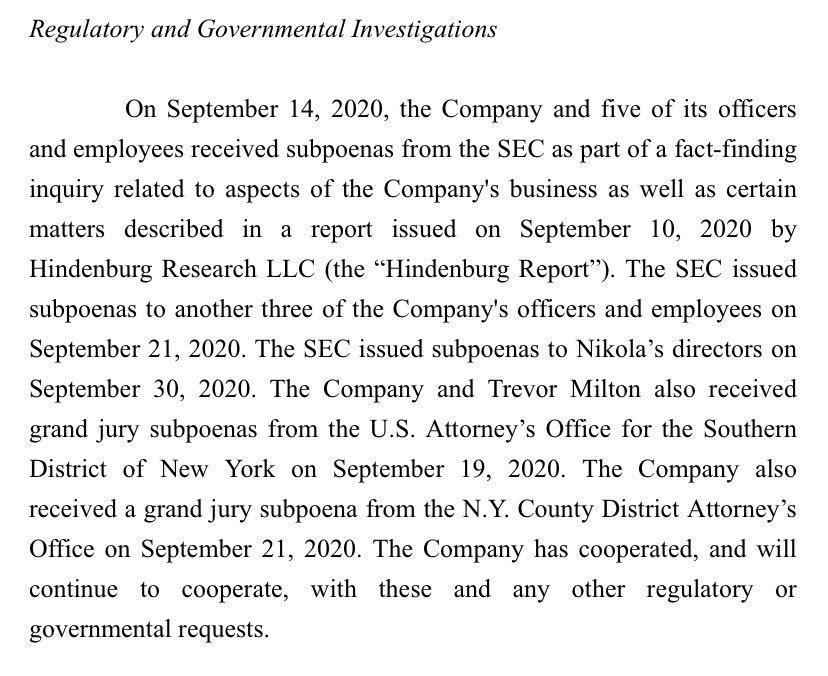Nikola reported "earnings" on Monday this week after the bell, but the focus wasn't on the $117 million net loss (on $0 revenue) the company generated, but rather the litany of subpoenas the company disclosed in its Form 10-Q for the third quarter.
Nikola disclosed in its filing that five of its officers and employees had received subpoenas from the SEC on September 14, 2020, just four days after short seller Hindenburg Research released their now infamous report calling the company an "intricate fraud".
The SEC tacked on additional subpoenas to three more officers and employees, and the company's directors, on September 21, 2020 and September 30, 2020, respectively.
But it wasn't just the SEC doling out subpoenas: the company and its founder Trevor Milton also received grand jury subpoenas from the U.S. Attorney's Office for the Southern District of New York on September 19, 2020. The New York county district attorney’s office also subpoenaed the company.
The subpoenas were related to “a fact-finding inquiry related to aspects of the company’s business” that the regulatory agencies began after Hindenburg Research's September 10, 2020 report, the filing says.
The company also disclosed spending $5.2 million in regulatory and legal matters for the quarter.
The company's potential deal with GM remains up in the air as of Monday, according to Financial Times. CEO Mark Russell said on Monday: “We are interested in doing the deal with GM, if we can get it done.”
The deadline to close on its partnership with GM is December 3, 2020.
Recall, among the bolder accusations made by Hindenburg Research in their scathing report about Nikola Corporation in September was the allegation that Nikola faked its Nikola One semi truck "in motion" video, which appeared to show a functioning big rig barreling through the desert, trailer in tow. Nikola later admitted that the video was simply a truck rolling down a hill.
We reported yesterday that Nikola may have used the customer deposits it was taking for the semi for "working capital" purposes, despite claiming in 2018 that it did not spend customer deposits.

